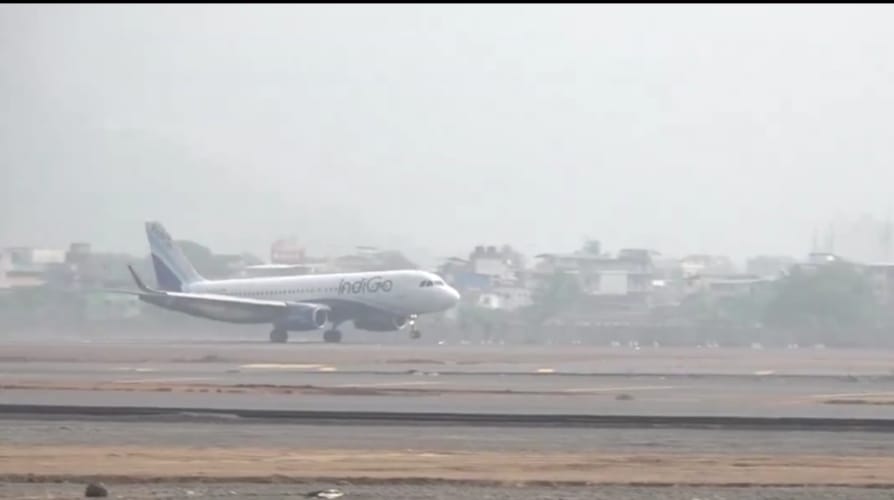Navi Mumbai International Airport Achieves First Successful Commercial Aircraft Landing Today

The Navi Mumbai International Airport (NMIA) reached a significant milestone on December 29 as it hosted its first commercial aircraft landing. An Indigo Airlines A320 took off from Mumbai Airport and landed on NMIA’s newly constructed Runway 08/26 (Airport Code: NMI). The event marked a critical step forward in the airport’s journey toward operational readiness.
Upon touchdown, the aircraft was greeted with a ceremonial water salute by two Crash Fire Tenders (CFT) from NMIA, symbolizing the airport’s readiness for commercial operations. This successful landing also validated the Instrument Approach Procedures at the airport, ensuring the synchronization of essential aviation systems.
“This is a momentous day for Navi Mumbai International Airport,” said Arun Bansal, CEO of Adani Airport Holdings Limited. “The successful validation flight is a major milestone, bringing us closer to operationalising NMIA while prioritising safety at every step. NMIA will not only offer world-class aviation facilities but also contribute to the region’s overall development. We are grateful to the DGCA and all agencies involved in this achievement.”
Senior representatives from the Directorate General of Civil Aviation (DGCA), Airports Authority of India (AAI), Customs, Immigration, CISF, CIDCO, IMD, BCAS, Adani Airport Holdings Limited, and other key stakeholders were present to witness this pivotal moment.
The successful completion of this trial flight is a step toward securing an aerodrome license from the DGCA, a vital requirement for full-scale operations. The milestone also underscores NMIA’s alignment with global aviation standards, paving the way for its scheduled opening in early 2025.
Earlier, on October 11, 2024, NMIA achieved another milestone with the landing of an Indian Air Force C-295 aircraft, marking the airport’s capability to handle multi-role tactical airlifters.
Once operational, NMIA will revolutionise the region’s aviation infrastructure, offering world-class facilities capable of handling 90 million passengers and 2.5 million tonnes of cargo annually. This transformative greenfield project is set to drive regional economic growth and enhance connectivity.












